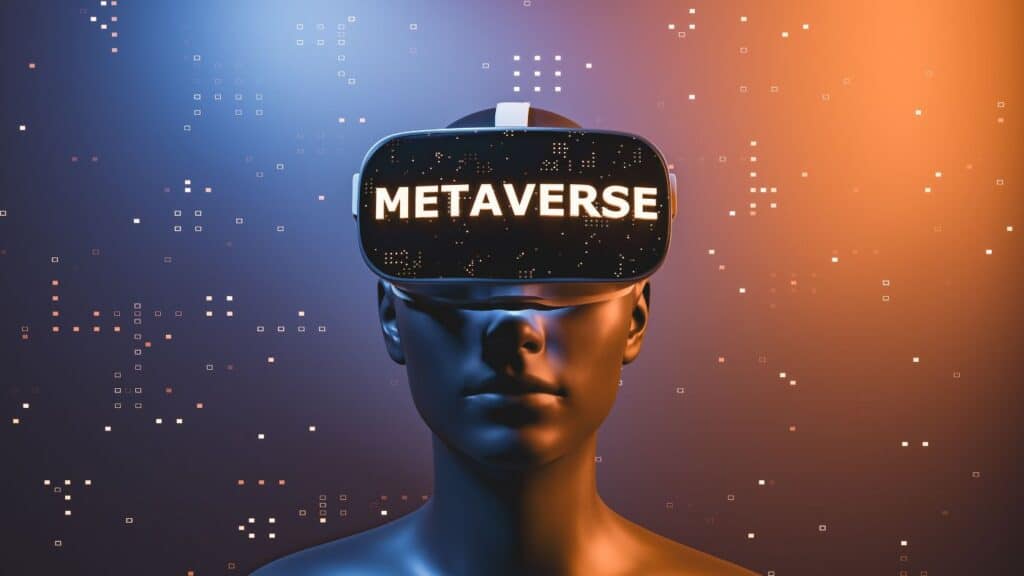The metaverse has opened up a new frontier for the real estate industry, creating a unique opportunity for those who wish to become real estate agents within this digital realm. As virtual reality gains popularity and an increasing number of individuals invest in digital land, the demand for metaverse real estate agents is expected to continue its upward trajectory. By understanding the nuances of this emerging industry, aspiring metaverse real estate agents can achieve success by helping clients navigate the complex world of virtual property transactions.
To thrive in this innovative field, individuals must familiarize themselves with the intricacies of the metaverse real estate industry. This includes acquiring knowledge about various virtual platforms, understanding the methodologies for valuing digital properties, and keeping up-to-date with the latest market trends. Developing expertise in marketing and promoting virtual properties is crucial to ensuring a steady stream of clients. Moreover, staying informed about legal and regulatory considerations will help metaverse real estate agents operate ethically and within the boundaries of the law.
Key Takeaways
- The metaverse presents a new and unique niche for real estate agents to explore and thrive in.
- Success in this field requires a comprehensive understanding of virtual platforms, property valuation methods, and legal considerations.
- Building a strong foundation in marketing and promotion is essential for attracting clients and establishing a successful career as a metaverse real estate agent.
Understanding the Metaverse Real Estate Industry
Basics of Metaverse Real Estate
The metaverse real estate industry is a rapidly growing sector, where people buy and sell virtual properties in various online environments. These virtual properties can be used for different purposes, such as creating businesses, hosting events, advertising, or simply as investments. Transactions in the metaverse typically use blockchain technology, providing transparency and security to the users involved.
Virtual Worlds and Communities
In the metaverse, numerous virtual worlds and communities exist, with each offering unique experiences and opportunities. Users can interact with others, create content, and even earn income from their virtual real estate investments. These worlds are often interconnected, allowing users to travel between them using their digital avatars and assets.
Some popular virtual worlds and platforms include:
- Decentraland: A decentralized, user-owned virtual world built on the Ethereum blockchain.
- The Sandbox: A gaming platform where users can create,
buy, and sell digital assets and virtual real estate.
Key Players in the Market: Decentraland, Sandbox, etc.
There are several key players in the metaverse real estate market that offer various platforms and services to facilitate virtual property transactions. These include:
- Decentraland: This platform allows users to buy, sell, and develop virtual land using its native cryptocurrency, MANA. Decentraland is known for hosting virtual events and art galleries, making it a popular option for both individual and corporate users.
- Sandbox: The Sandbox is a virtual gaming platform built on the Ethereum blockchain. It enables users to create, own, and monetize their virtual experiences and assets, such as gaming experiences, art, and other digital content.
- Other platforms, such as Somnium Space, CryptoVoxels, and Axie Infinity, also contribute to the metaverse real estate industry, each offering unique functionalities and opportunities for users and investors.
The metaverse real estate industry continues to evolve, providing new opportunities for users and real estate agents alike. Understanding the basics of the market and the key players involved is crucial for those looking to capitalize on this emerging trend.
Becoming a Metaverse Real Estate Agent
Essential Skills and Knowledge
To become a successful metaverse real estate agent, one must develop specific skills and knowledge. First and foremost, you should be knowledgeable about the crypto market, including crypto buying, wallets, exchanges, and the Ethereum blockchain used predominantly in platforms like Sandbox and Decentraland. Strong communication skills and the ability to manage your avatar professionally in virtual settings are also crucial for interacting with clients.
Understanding the dynamics of virtual land ownership and keeping up-to-date with the latest metaverse developments are imperative for any aspiring metaverse real estate agent. Moreover, becoming proficient in digital marketing strategies will help you market properties effectively in this emerging virtual world.
Education and Training Requirements
While there are no specific educational requirements for becoming a metaverse real estate agent, a background in traditional real estate and a solid understanding of virtual real estate services can give you an advantage. This knowledge will help you navigate this new landscape and provide your clients with the best possible service.
It’s essential to invest in good quality software designed specifically for the metaverse, to showcase properties effectively to your clients. To further educate yourself, consider taking courses on relevant subjects such as blockchain technology, digital marketing, and virtual reality. Being proactive about your education and training will ensure you are well-prepared for the unique challenges of metaverse real estate.
Networking and Building Connections
Building connections within the metaverse real estate community is vital for your success as an agent. Forge relationships with other agents, brokers, and industry professionals, as they can offer valuable insights, share experiences, and provide potential client referrals. Additionally, attending virtual conferences, meetups, and joining online forums dedicated to metaverse real estate can help you expand your professional network. Don’t be afraid to reach out to other professionals and learn from their experiences, as this will propel you forward in your metaverse real estate career.
Navigating the Virtual Real Estate Market
Virtual Property Transactions and Blockchain Technology
In the Metaverse, virtual property transactions are facilitated through blockchain technology. This allows buyers and sellers to complete deals without the traditional challenges of physical real estate, such as dealing with agents, complicated paperwork, or traveling to see properties. Blockchain technology, a decentralized digital ledger, makes transactions secure and transparent, improving trust among participants in the market.
Companies like Tokens.com have acquired virtual real estate to stake their claim within this growing market. Aspiring metaverse real estate agents should understand how blockchain technology underpins these transactions and become familiar with the key elements involved, such as smart contracts and land ownership tokens.
Opportunities and Challenges
The Metaverse offers numerous opportunities for real estate agents to expand their reach and tap into a new market. Agents must understand the unique virtual landscape and adapt their marketing and negotiation skills to the digital realm to thrive in this sector. Hone your ability to operate within various metaverse platforms and environments. Maintaining a strong online presence and staying updated with emerging trends are essential to success.
However, this new field also brings several challenges. Virtual property values may be volatile because the Metaverse is an ever-evolving digital landscape. Agents should stay informed of developments and potential risks. Building trust in an environment where anonymity is possible and fraud may occur is crucial.
Trending Cryptocurrencies and Their Relevance
Cryptocurrencies play a significant role in the Metaverse as many transactions occur using digital currencies. Some popular cryptocurrencies within this space include cryptocurrencies such as Ethereum and MANA, a token used in Decentraland for trading virtual goods and services.
As a metaverse real estate agent, understanding the role and mechanisms of cryptocurrencies in the virtual market is essential. Familiarize yourself with popular cryptocurrencies and their relevance to the Metaverse to better serve your clients and navigate transactions.
By mastering these essential aspects of the virtual real estate market, metaverse real estate agents can unlock new opportunities and adapt to the rapidly-increasing demand for digital land and properties.
Marketing and Promoting Virtual Properties
Leveraging Social Media Platforms
Effective marketing for a metaverse real estate agent includes leveraging social media platforms, such as Twitter and other popular networks, to reach potential buyers and sellers. Regularly sharing engaging content, such as virtual land listings, articles, and blog posts can help agents attract an audience interested in virtual properties. Participating in relevant online communities and using targeted hashtags can also help agents reach a wider audience and showcase their expertise.
Developing a Strong Online Presence
A strong online presence is crucial for metaverse real estate agents who aim to succeed in the industry. Establishing a professional website or blog can serve as a hub for showcasing virtual land listings, sharing informative articles, and connecting with clients. Moreover, optimizing the website for search engines and regularly producing high-quality content can help drive organic traffic and lead generation. Networking with other professionals in the field and engaging in cross-promotion opportunities can also contribute to an agent’s online visibility and brand recognition.
Virtual Reality and Augmented Reality Marketing
Innovative marketing techniques, such as virtual reality (VR) and augmented reality (AR) marketing, are valuable tools for metaverse real estate agents looking to stand out from the competition. VR and AR technologies can be utilized to create immersive virtual tours of digital properties, allowing potential buyers to experience the virtual land firsthand. These technologies can also assist agents in showcasing the unique features and benefits of digital properties in ways that traditional marketing methods may not be able to. By staying on the cutting edge of marketing technology, metaverse real estate agents can offer an unparalleled experience for their clients and stay ahead in the rapidly emerging industry.
Building a Successful Career as a Metaverse Real Estate Agent
Identifying Your Niche and Target Audience
To become a successful metaverse real estate agent, it’s crucial to identify your niche within the virtual landscape. This could include focusing on a specific virtual world, type of property, or technology platform. By understanding who your target audience is, you’ll be better equipped to provide them with the most relevant and valuable services. For example, you could choose to target investors looking for a long-term property, or communities seeking to establish their virtual presence.
Staying Informed and Adapting to the Changing Landscape
The metaverse is an ever-evolving environment, and as a real estate agent, staying informed about emerging trends, technologies, and user behaviors is essential for success. Professional metaverse real estate agents should be proactive about learning and adopting new tools, such as blockchain-based property registries and virtual reality platforms, to provide comprehensive and up-to-date services for their clients. Analyzing market data and being agile in adjusting your strategies to adapt to changing landscape will position you as a knowledgeable expert in the field.
Legal and Regulatory Considerations
Understanding Contracts and Legal Landscape
When engaging in transactions in the metaverse, it is crucial for aspiring metaverse real estate agents to understand the legal landscape and familiarize themselves with the various types of contracts involved. This includes understanding the terms and conditions governing the purchase, sale, and leasing of virtual properties.
Since the metaverse is a relatively new concept, the legal environment surrounding it may not be fully established. Therefore, staying updated on any developments in jurisdiction, intellectual property, and consumer privacy is essential 1. Moreover, cryptocurrencies are often used as the primary mode of payment for metaverse transactions, which may introduce additional complexities related to financial regulatory compliance2.
Navigating Secondary Market and Rental Agreements
In the metaverse, the secondary market can play a significant role in facilitating the sale or lease of virtual properties. Metaverse real estate agents should be well-versed in navigating this market, understanding the process of listing and managing virtual properties on various platforms, and ensuring that all parties involved are aware of their contractual obligations.
Rental agreements in the metaverse may differ significantly from those in the physical world. It’s essential for agents to be aware of any unique clauses or provisions that may apply, as well as how disputes can be resolved in this digital environment. This could include issues related to maintenance, subletting, or even the termination of lease agreements in the virtual realm3.
Ethical Issues and Responsibilities
As professionals operating within the metaverse, real estate agents must conduct themselves ethically and responsibly. This involves upholding confidentiality and privacy, avoiding conflicts of interest, and ensuring that they act in the best interest of their clients4. Furthermore, agents must be transparent about any fees or commissions they charge, maintain accurate records of their transactions, and stay informed about any emerging trends or technologies that could impact the metaverse real estate market.
In conclusion, aspiring metaverse real estate agents must be well-informed about the legal and regulatory considerations associated with this new frontier. By understanding the intricacies of the contracts and legal landscape, navigating the secondary market and rental agreements, and maintaining ethical conduct, these professionals can successfully chart a course in this dynamic space.
Footnotes
Future Opportunities and Developments in the Metaverse Real Estate Industry
Integration of Web 3.0
The metaverse real estate industry is poised to benefit significantly from the integration of Web 3.0 technologies. These technologies enable decentralized, seamless connections between virtual and physical worlds, transforming how agents and investors interact with virtual properties. As Web 3.0 evolves, so too will the opportunities for metaverse real estate, with more versatile and interoperable online communities being developed. The implementation of blockchain-based platforms, decentralized autonomous organizations (DAOs), and tokenized assets in the industry is expected to create new avenues for investment and revenue generation.
Advancements in Digital Technologies
Innovations in digital technologies, such as virtual and augmented reality, haptic feedback, and spatial computing, will enhance the user experience within the metaverse, making it increasingly immersive and interactive. This will create more demand for virtual properties as users seek engaging digital experiences, leading to higher valuation for metaverse real estate assets. As more advanced digital technologies are adopted, the quality and functionality of virtual properties are expected to improve, attracting a wider range of investors, developers, and end-users.
Potential for Growth and Expansion
The metaverse real estate industry holds immense potential for growth and expansion, thanks to the increasing interest in virtual worlds and the rising awareness of their economic potential. As more people become familiar with the concept of virtual land ownership and the opportunities that come with it, the market for metaverse real estate is likely to see substantial growth. The ongoing developments in virtual reality and Web 3.0 technologies provide a solid foundation for future expansion of the industry, opening up new opportunities for investment, collaboration, and value creation.
By harnessing the potential of Web 3.0, advanced digital technologies, and ever-growing online communities, the metaverse real estate industry is well-positioned to revolutionize the way people interact with and invest in virtual properties. This rapidly evolving landscape presents a wealth of opportunities for those who can adapt and stay ahead of the curve in this emerging market.
Frequently Asked Questions
Required skills and training
To become a metaverse real estate agent, it’s essential to have a thorough understanding of how the metaverse works. Acquiring education and training in navigating different virtual worlds, creating avatars, and using features like voice chat and messaging is crucial 1. Additionally, staying tech-savvy and proficient in using VR headsets and 3D scanners is beneficial 2.
Finding metaverse properties
Sourcing metaverse properties requires researching various virtual platforms, understanding the demand and value of virtual land, and staying updated on emerging opportunities. Networking with fellow metaverse real estate agents and joining a Metaverse Real Estate Association can provide insight and access to valuable resources in finding properties 3.
Real estate platforms in metaverse
Numerous platforms exist within the metaverse which focus on real estate transactions. It’s essential to familiarize yourself with popular platforms and their unique features, requirements, and procedures. This will enable you to effectively cater to clients in different virtual worlds, ensuring a smooth buying or selling process.
Marketing and selling tips
Successful metaverse real estate agents employ hard work, dedication, and a strategic approach to marketing and selling virtual properties 4. Utilizing immersive VR presentations, effective communication, and leveraging professional networks are essential for marketing properties to potential buyers. Providing exceptional customer service and staying abreast of market trends is crucial for conducting successful sales transactions.
Managing virtual land
Managing virtual land entails keeping up-to-date on ownership rights and guidelines, land development, and maintaining a thorough understanding of each virtual world’s rules and systems. Staying informed on emerging technologies and tools, and collaborating with developers and designers can greatly influence virtual land management.
Building a reputation
A strong reputation is crucial for a metaverse real estate agent’s success. Building trust through reliable service, professionalism, and transparency with clients sets the foundation for creating a positive reputation. Continuously expanding your knowledge and expertise, providing value to clients, and growing your network within the metaverse real estate community can strengthen your reputation over time.
Footnotes
- https://metamktgagency.com/blog/how-to-become-a-metaverse-real-estate-agent-detailed-guide ↩
- https://www.influencive.com/how-to-become-a-real-estate-agent-in-the-metaverse/ ↩
- https://academicful.com/real-estate-agent-metaverse/ ↩
- https://howmetaverseworks.com/how-to-become-metaverse-real-estate-agent/ ↩



